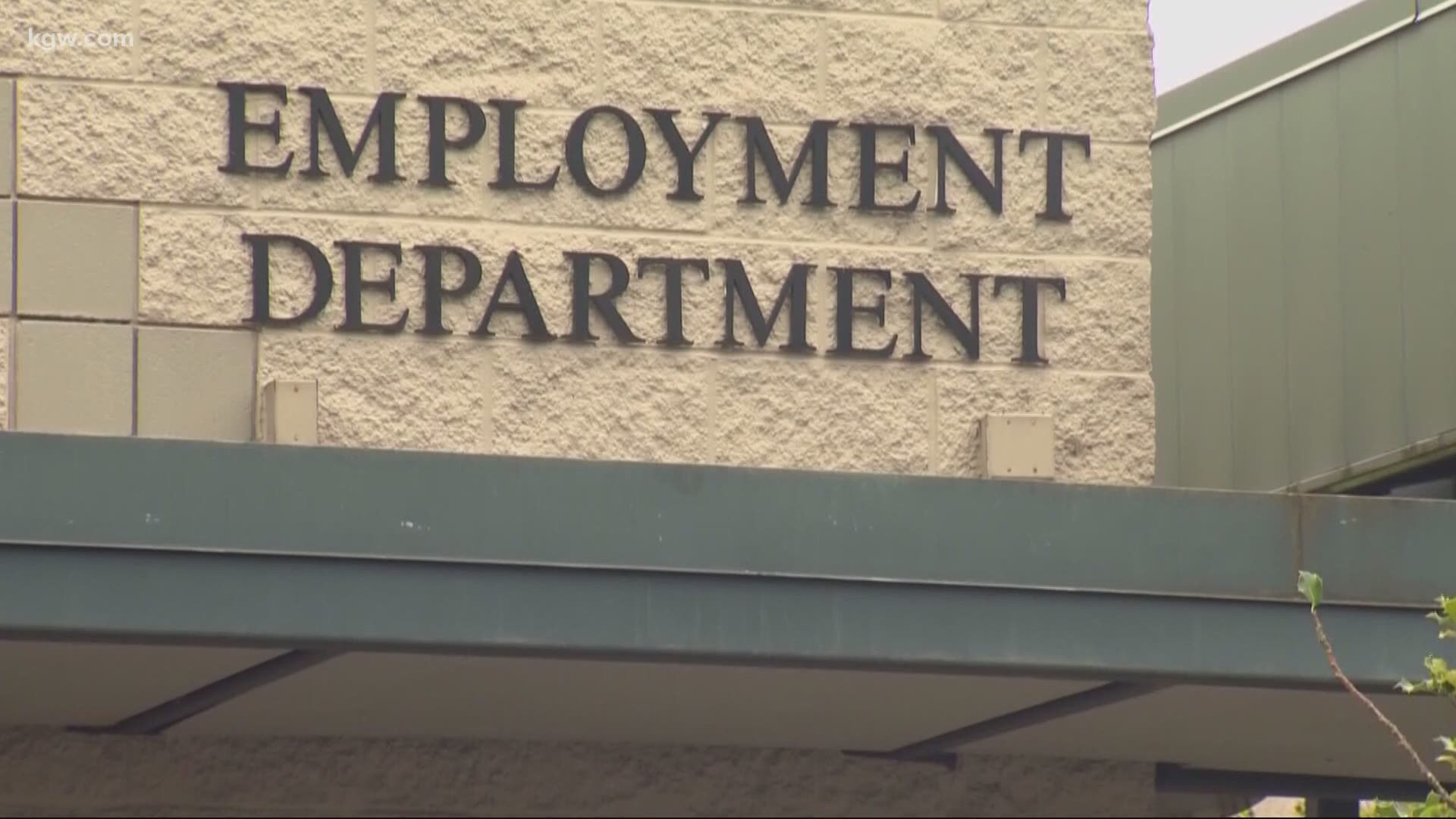PORTLAND, Ore — In April, Oregon Governor Kate Brown announced the employment department would waive the waiting week for unemployment benefits.
In normal times in Oregon people typically can't get benefits for the first week they're out of a job.
But we're not in normal times. So in March congress changed the rules, giving states money to nix the one-week wait and pay benefits.
The Oregon Employment Department agreed to get rid of the requirement - eventually. Here we are three months later and it still hasn't happened.
“I just don't know what they expect people to do or how they expect people to survive. I mean, some of us are on the verge of homelessness, literally,” said Jodi Webster, who says she was laid off from her job in April. “The longer it goes on the more angry I am, the more sad I am, the more scared I am. And I feel for everyone else going through the same thing.”
Getting that week of benefits would help thousands of people like Webster who lost their jobs amid the pandemic.
When she finally got through to someone on the phone she was told an adjudicator still had to get to her claim.
"I’m at 13-plus weeks now and I was told it could be another four to five weeks before anyone gets to it,” said Webster.
With $1.23 in her bank account, she can barely get by.
"I feel helpless, I feel hopeless. I'm depressed, my anxiety is obviously through the roof. I just feel like I'm crying out for help and no one hears me, no one,” said Webster, “Or if they do they don't care, it's not their problem, there's nothing they can do is what I get told by a lot of people.”
The Statesman Journal reports Oregon owes people hundreds of millions of dollars in benefits for waiting weeks.
Wednesday afternoon, Oregon Employment Department Director David Gerstenfeld held a teleconference call and couldn't say if or when the department will get to waiving the week.
When asked why, he said it was because the department's outdated computer system couldn't implement the change and it prioritized other claims ahead of the waiting week.
"As we built those systems they were built around the assumption of a waiting week. So all the computations that go into our systems have that assumption built-in,” Gerstenfeld told reporters during the press conference. “So far none of the workarounds are really possible without still having to trace threads of the waiting week and other issues through the system.”
Until IT folks get into the code and take out the waiting week, he says they won’t have a “solid estimate as to when we’ll be able to do that."
That answer doesn't console those desperate for help.
"I know no one was prepared for a pandemic, obviously, but it's been months! And it seems like nothing has changed in all those months,” said Webster.
As far as whether she and the thousands of others in her same shoes will get the help they need soon, Gerstenfeld couldn't promise the agency would be able to waive the waiting week in time to meet the federal deadline of December 31. If they don’t make it, people who lost their jobs could lose out on hundreds of millions of federal dollars. (See his complete answers below)
Q: When does OED plan on waiving the waiting week?
A: We are committed to doing everything we can to waive the waiting week, but we cannot commit to implementing it before the end of the year. We are in discussions with the U.S. Department of Labor about any time constraints.
Q: Why has the department not done so already?
A: The series of legacy systems that operate the unemployment insurance program were all built around the concept of having a waiting week. Automatic checks designed to protect public funds have that assumption built in, so there is a risk that paying the waiting week would trigger automatic actions to stop ongoing payments, or to make the system believe the person had been overpaid – triggering overpayment decisions, stopping of benefit payments, deductions from benefit payments and other problems. All of the complex federal reporting states are required to do, and upon which we rely to get our federal money to administer the unemployment insurance program, are also built around the idea of a waiting week. For people who are unemployed for more than 26 weeks, it would also mean a series of complex adjustments across multiple benefit programs. If they get paid for the waiting week, it means their benefits all start one week earlier. For some, that means the last week of regular payments they received, they were not eligible for. With several extension programs, though, it would mean then retroactively moving them from regular unemployment insurance benefits to one of those extension programs.
Q: How much money does the unpaid waiting week total out to at this point?
A: It is difficult to estimate the financial impact of waiving the waiting week, as there are lots of unknowns, including how long the waiver will remain in place, and how many more people will file new claims for benefits. A very rough estimate of the impact is that about $200M. This includes the regular waiting week benefits themselves, and the additional $600 in Federal Pandemic Unemployment Compensation (FPUC) benefits, but, under federal law, those extra $600 would only go to people whose waiting week was between March 29 and July 25, 2020.

